 Education
Education
During Saturday School activities, children perform various practical experiments, implement projects, explore nature, play educational games, and engage in creative activities. Outdoor games are another part of Saturday School. Students are encouraged to cooperate, be physically active, and cultivate a connection with nature while enjoying sports, games, and nature walks. These experiences help children develop important social skills, build lasting relationships, and improve their English language skills.
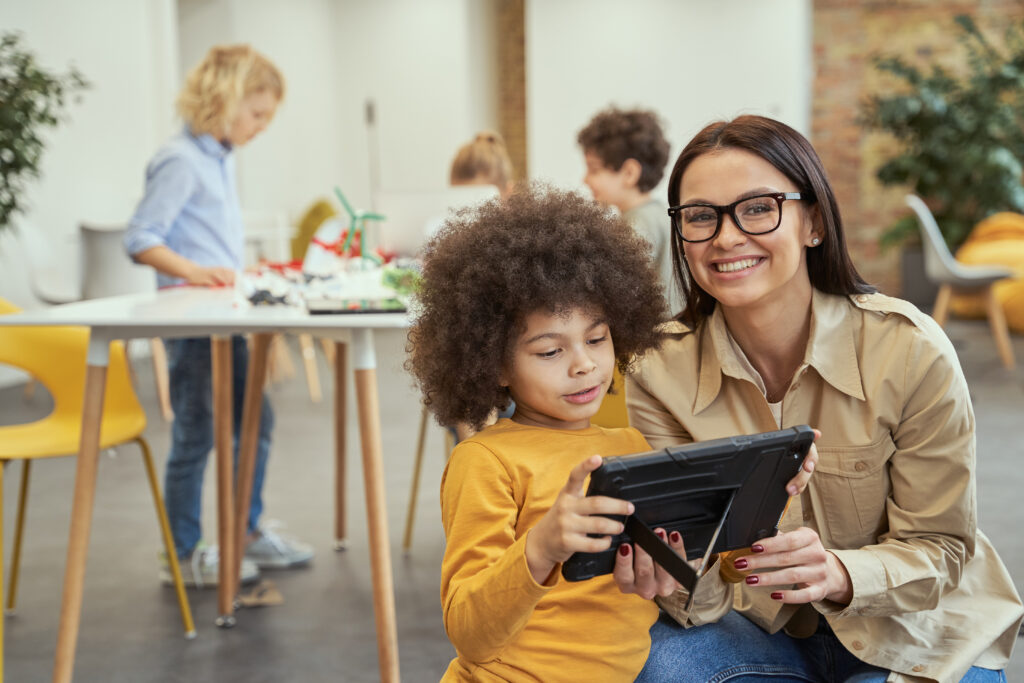
It’s a holistic concept of personality development, implemented and integrated by harmonizing four educational dimensions
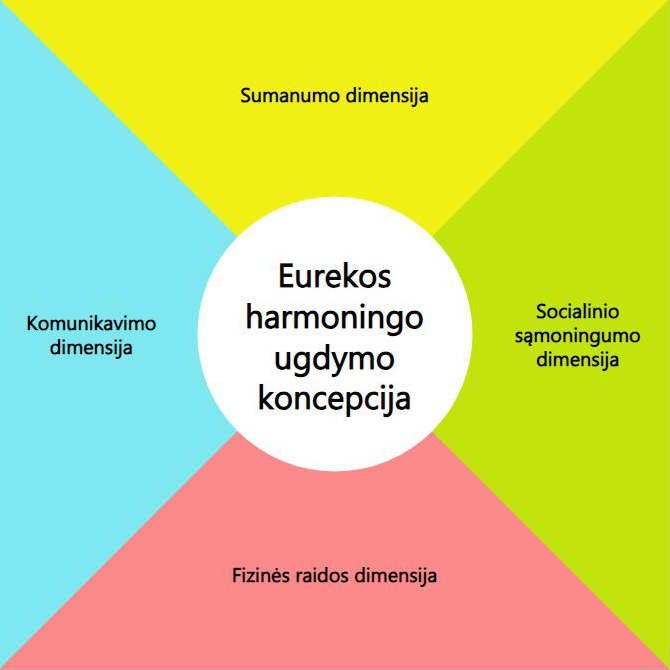
Saturday English School is a great opportunity for children to improve, learn English and build relationships among peers. Activities full of surprises take place on Saturdays from 10:00 a.m. to 1:00 p.m.
Dimension of Intelligence
- Knowledge of the world
- Critical thinking and problem solving
- Logical thinking and calculation
- Creativity
Dimension of Social Awareness
- Emotional intelligence
- Self-confidence
- Initiative
- Cooperation
Physical Development Dimension
- Healthy lifestyle
- Physical activity
- Fine motor skills
- School without borders
Communication Dimension
- Bilingual environment
- Speaking and listening
- Reading
- Writing
What does Saturday in Eureka look like?
We meet at Saturday School at 10:00 a.m. and start an extraordinary afternoon together with the little discoverers! We play a familiarization game, discuss the topic of Saturday School, do some exercises, and dive into super fun activities! We conduct experiments and participate in creative activities.
In the afternoon, we enjoy snacks and spend time relaxing and playing outside. In case of bad weather, we use the various indoor spaces of the school. At 1:00 p.m., we say goodbye and make plans for the next meeting!
Discovery based education
Discovery-based education promotes children’s curiosity and desire to learn by providing opportunities to explore new things both in and outside of school. In Eureka this method is organized according to a seven-stage structure based on extensive experience and modern educational trends.
Get interest
1
Create intrigue by asking children: “Do you know what the biggest and strongest tree in the forest is?”
Name
2
Introduce oak tree to children, its composition, leaves, and roots. We write the name on the board – it’s a great opportunity to learn letters!
Understand
3
Analyze visual material: read a book about oak trees, show scientific video content. Children see how a small seed grows into a big tree, understand how and why trees breathe, why they need roots, and why tree trunk sizes differ.
Explore
4
K
We go into the forest or park, where we embrace a tree, try to guess its age, explore its structure, smell it and discuss scent associations. Bringing an acorn into the classroom, we examine it. Parents would be amazed at what we discovered!
Save
5
Time to create! Using a chosen technique we draw an oak tree and color its leaves in various colors. We prepare an exhibition of drawings in the classroom, and we preserve the colorful tree leaves inside a book, which we’ll use in the future.
Empathize
6
Now let’s dive into an incredible role-play game! By listening to the sounds of the forest we imagine ourselves as different trees and forest inhabitants. We create a short film that we share with the Eureka community. We also organise a tree planting campaign involving the Eureka’s family and school neighbors!
Introduce
7
We summarize knowledge, discuss what we have learned and what we would like to learn in the future. Children share their impressions of an oak tree and other trees. After discussing the knowledge accumulated during the week we dream about the adventures and discoveries of the next week!

 Learning through play
Learning through play
We believe that a game is children’s work so in Eureka, children spend most of the day learning through play. Play is an important element of a child’s development helping to form social, logical thinking and communication skills, positively impacting children’s emotions, and ensuring an appropriate level of physical activity. In Eureka we integrate free play, educational, team-based and narrative gaming methods.
 Communication in English
Communication in English
The earlier a child starts learning a new language, the faster he learns it without harming the development of his native language. At Saturday school, all activities are conducted in English. Children learn a new language naturally in social and communicative situations, while playing, communicating and participating in educational activities.
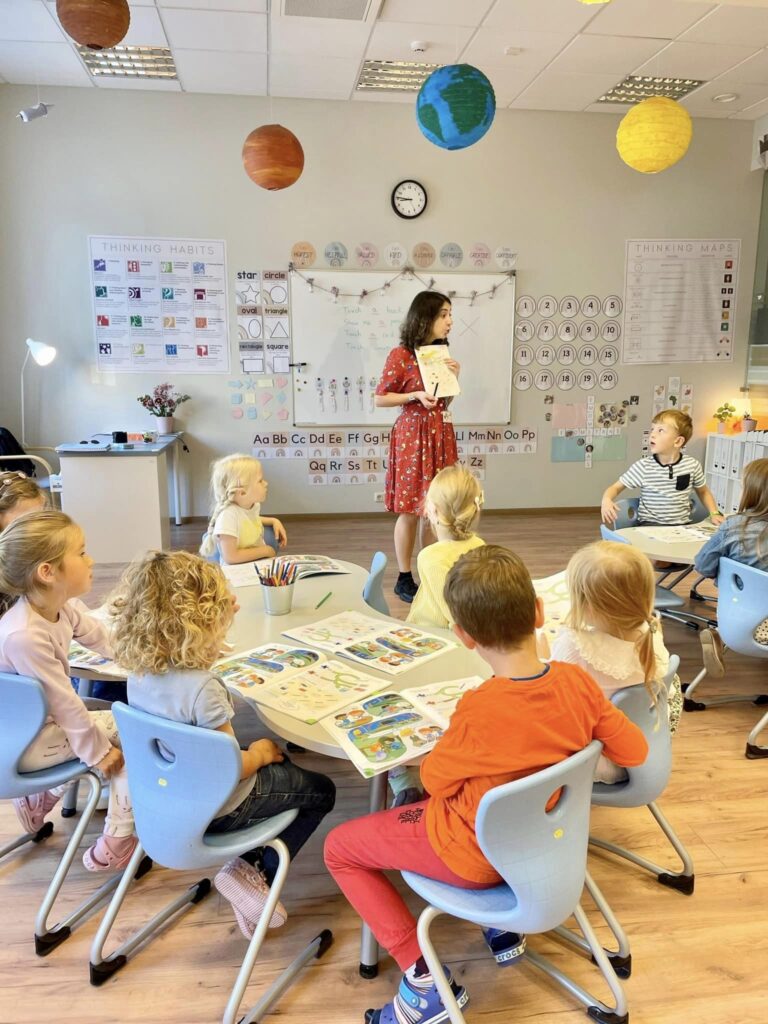
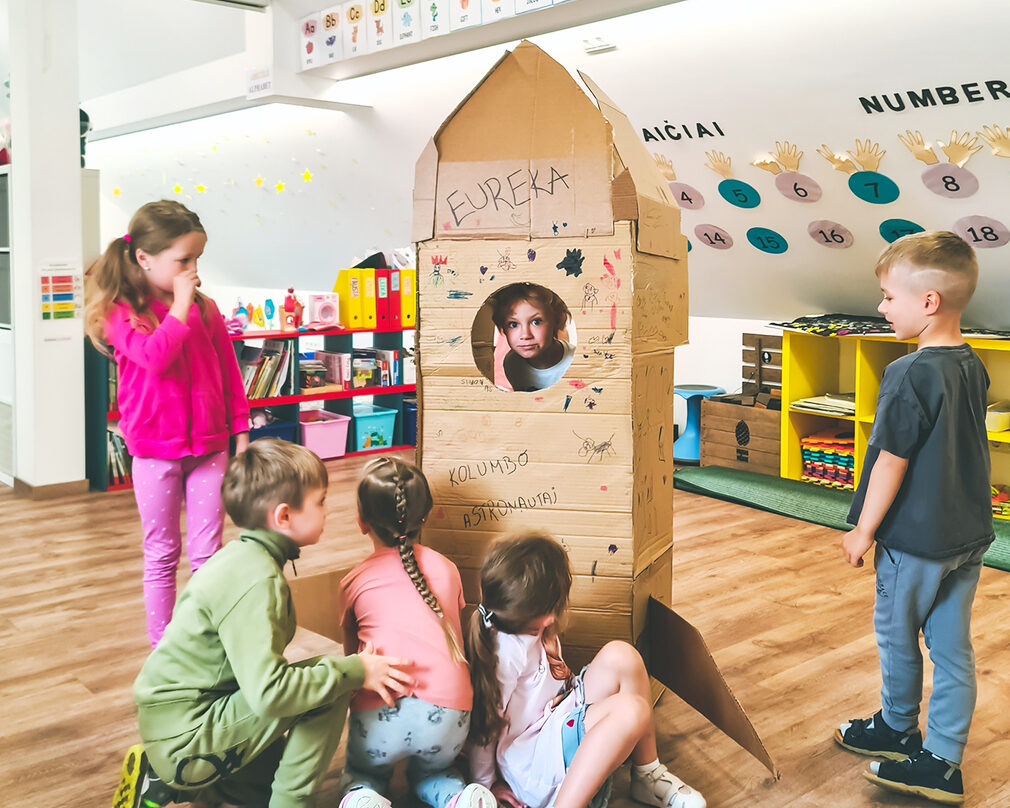
 Education of creativity
Education of creativity
Eureka firmly believes that every child is a unique creator. School strives to reveal children’s talents, not limiting itself to just academic abilities, but also promoting creative growth through a fusion of music, art, dance and design, as well as the use of various materials, tools, and technologies.
Eureka’s team radiates creative energy and enthusiasm, aiming to enrich the curriculum with fresh and exciting creative elements that inspire and enhance children’s learning experiences.
 Sustainable Thinking Education
Sustainable Thinking Education
Eureka’s environment, unique educational tools and professional teachers educate children who not only bravely explore the world, but also understand the importance of friendship between human and nature. We learn the basics of sustainability through the connection with nature and vegetation, the use of secondary raw materials, project activities and integrated educational content, which is based on the 17 Sustainable Development Goals set by the United Nations.
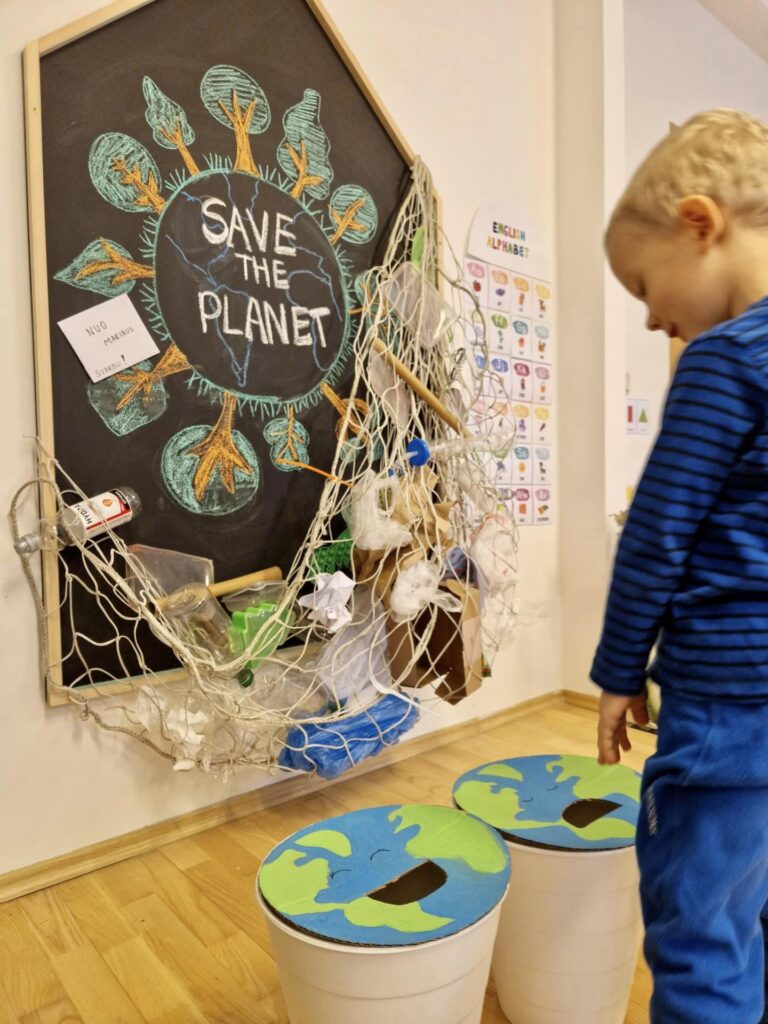
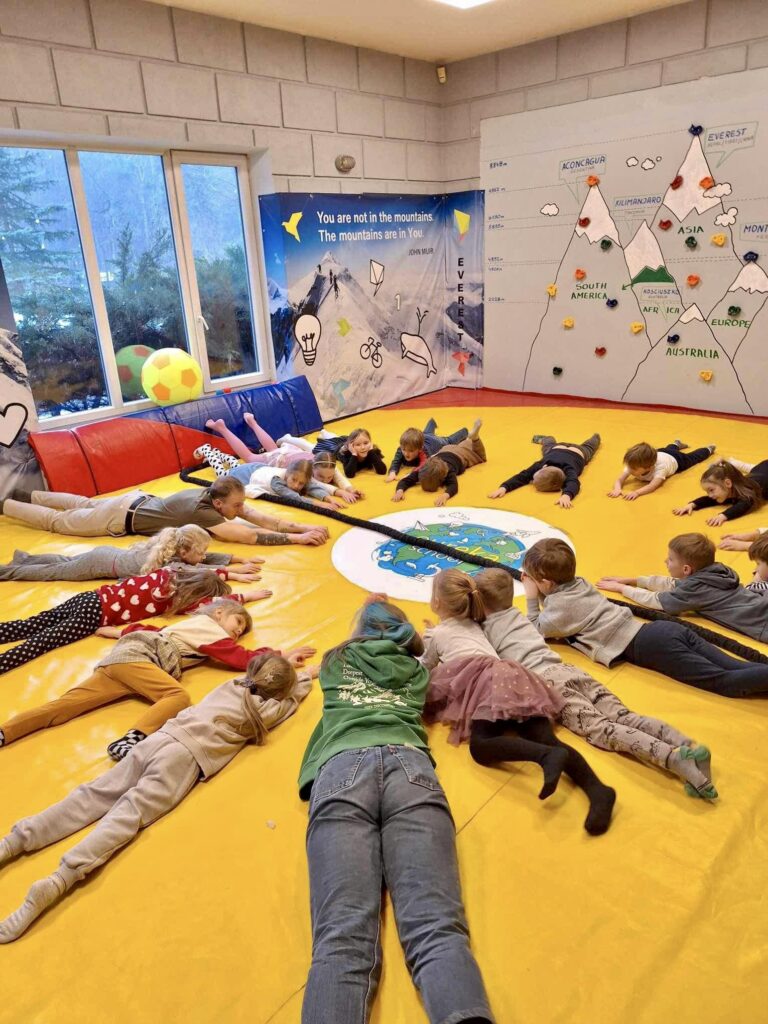
 We learn to relax
We learn to relax
The Eureka team set out to create a stress-free learning environment. Children are greeted every day by a cozy, calming environment that resembles home. We devote a lot of time to mental and physical exercise, we use mindfulness practice, and the development of children’s emotional intelligence is one of the priorities. Eureka features playful education that is fun and less tiring for children. Professional teachers pay attention to children’s relaxation and rest during the day.


